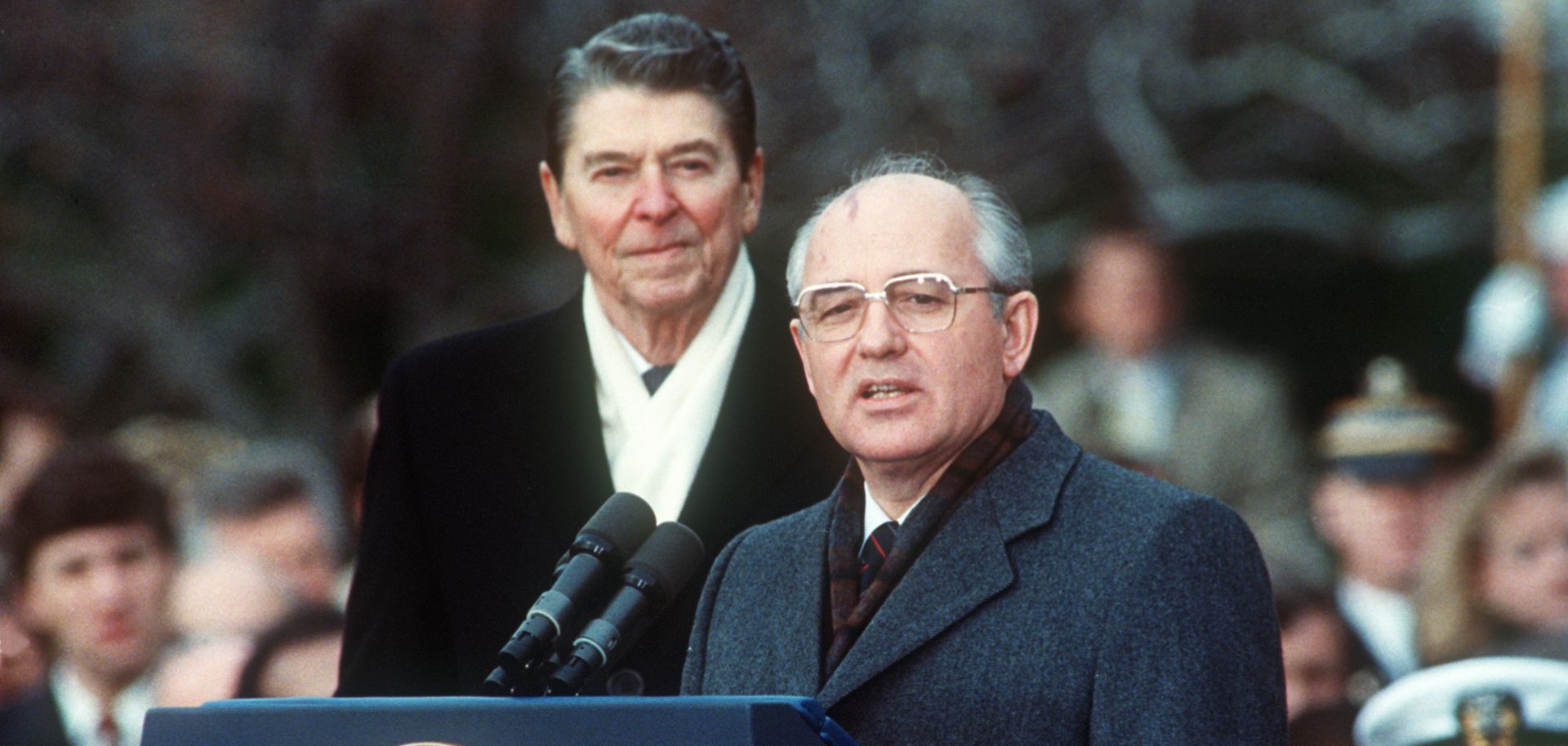ASSESSMENTS
What Does the End of the INF Treaty Mean for Europe?
Feb 25, 2019 | 10:00 GMT

Soviet leader Mikhail Gorbachev speaks in front of U.S. President Ronald Reagan during a welcoming ceremony at the White House on the first day of a disarmament summit on Dec. 8, 1987. Proliferation appears likely now that the United States has torn up the INF Treaty.
(JEROME DELAY/AFP/Getty Images)
Highlights
- Though the INF Treaty has collapsed, the stipulations of another arms treaty, New START, are likely to prevent Russia from altering its nuclear posture toward Europe much in the near future.
- However, the continued erosion of arms control treaties, especially New START, could result in nuclear proliferation in Europe.
- Countries in Western Europe are likely to balk at the increased deployment of nuclear-armed U.S. missiles in their countries, but NATO members in Eastern Europe could be more amenable due to their greater fears of the Russian threat.
Proceed to sign up
Register NowAlready have an account?
Sign In